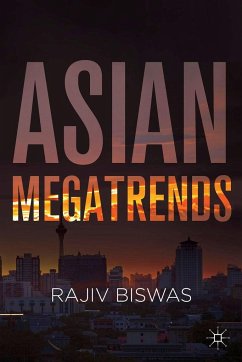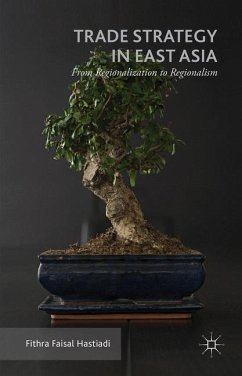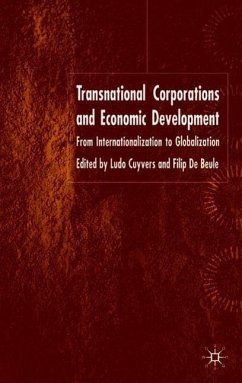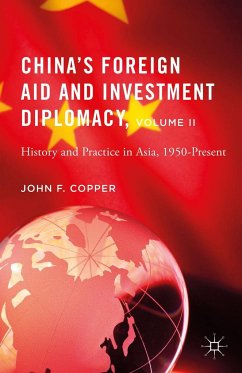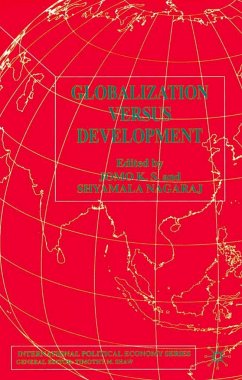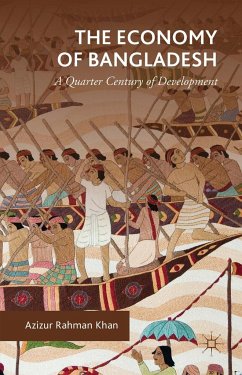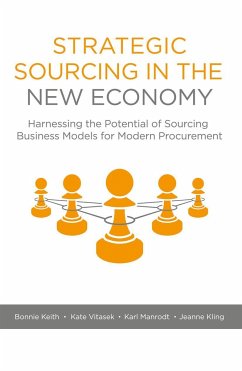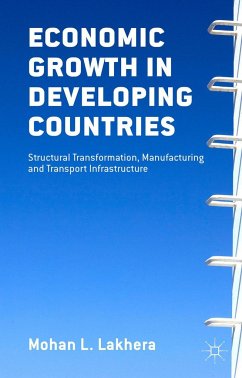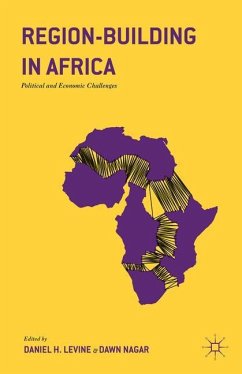
Gebundenes Buch
ASEAN Economic Community
A Model for Asia-wide Regional Integration?
Herausgegeben: Mikic, Mia; Jetin, Bruno
Versandkostenfrei!
Versandfertig in 6-10 Tagen
Weitere Ausgaben:

PAYBACK Punkte
42 °P sammeln!





The launch of the ASEAN Economic Community raises key issues: the deepening of regional trade and the associated problem of exchange rate management. This volume questions the capacity of a shallow institution to deal with complex impacts on employment and inequality. Contributors analyze ASEAN's potential and weakness in readable terms.
Bruno Jetin is Researcher at the Research Institute on Contemporary Southeast Asia, Thailand, and Associate Professor of Economics at the University of Brunei. He was previously Associate Professor of Economics at Sorbonne Paris Cité University, France, and Fellow Researcher at the University of Chiang Mai, Thailand. Mia Mikic heads trade policy work in the United Nations Economic and Social Commission for Asia and the Pacific and coordinates ARTNeT. She has also served as Professor of International Economics at the University of Zagreb, Croatia, and as Senior Lecturer at the University of Auckland, New Zealand.
Produktdetails
- Verlag: Palgrave Macmillan / Palgrave Macmillan US / Springer Palgrave Macmillan
- Artikelnr. des Verlages: 978-1-137-53710-2
- 1st ed. 2016
- Seitenzahl: 364
- Erscheinungstermin: 5. Januar 2016
- Englisch
- Abmessung: 241mm x 160mm x 26mm
- Gewicht: 655g
- ISBN-13: 9781137537102
- ISBN-10: 1137537108
- Artikelnr.: 43543635
Herstellerkennzeichnung
Palgrave Macmillan
Tiergartenstr. 17
69121 Heidelberg
ProductSafety@springernature.com
"This edited book focuses on the ASEAN Economic Community (AEC). ... This book is an interesting read for policymakers, economists and anyone interested in ASEAN and the AEC. ... the book is broadly based and renders a great summary of what regional integration in Southeast Asia has achieved and depicts a good picture of what may happen if a wider regional economic community within East Asia is built." (Christoph Casimir Odermatt, Journal of Southeast Asian Economies, Vol. 33, April, 2016)
Review of ASEAN Economic Community 2015 edited by Bruno Jetin and Mia Mikic
Douglas Brooks dofrobro@gmail.com
The potential audience for this volume consists of academics, government officials involved in fields related to or
Review of ASEAN Economic Community 2015 edited by Bruno Jetin and Mia Mikic
Douglas Brooks dofrobro@gmail.com
The potential audience for this volume consists of academics, government officials involved in fields related to or
Mehr anzeigen
affected by regional cooperation and integration, and the broader development community. The book will attract economists (including political economists) but also other social scientists both from the Asia/Pacific region and from nonregional countries due to the diverse perspectives presented by contributors from various nationalities and the inherent lessons for other regions undergoing or considering economic integration.
The quality of the project is attested to by the high professional reputation of the contributors and their acknowledged expertise in the fields they, and the organizations they represent, address. The work is original, reflecting the importance and novelty of the AEC arrangements, as well as their implications for Asia-Pacific integration more broadly and alternative regional cooperation proposals. The contributors expound a range of different views, and various aspects are covered (free trade agreements, exchange rates, global value chains, innovation, inclusiveness, inequality, social cohesion, governance, connectivity, institutions), while many books on ASEAN or Asian integration focus on a much narrower scope. The book does not deal with ASEAN EC exclusively but reflects the centrality of the AEC in the Asia-Pacific integration process by setting it in the broader context. Frequent references to European integration and other regional cooperation efforts help to highlight strengths and limitations of the AEC.
The structure of the book is clear. It is organized around three main topics and is correspondingly divided into three sections: the first part presents the core economic issues of ASEAN EC/Asian integration (both macro and micro, the juxtaposition of which is unusual in ASEAN integration studies). The second part examines the impacts on innovation, structural transformation, and jobs. The third part deals with the consequences for domestic issues of inequality, social cohesion and governance. The presentation (at least in the materials provided) is clear and at a level of technicality suitable for a wide range of readers.
The recent APEC summit in Beijing and the Chinese support for a renewed drive for the Free Trade Area of Asia and the Pacific (FTAAP) suggests that the proposed volume could benefit from greater discussion of the relationship between, and comparative advantages of, the AEC and the FTAAP. Other regional cooperation efforts are discussed in some detail, but the FTAAP is largely neglected. This lacuna can be easily addressed and subject to this proviso, I strongly recommend publication of the proposed volume.
The quality of the project is attested to by the high professional reputation of the contributors and their acknowledged expertise in the fields they, and the organizations they represent, address. The work is original, reflecting the importance and novelty of the AEC arrangements, as well as their implications for Asia-Pacific integration more broadly and alternative regional cooperation proposals. The contributors expound a range of different views, and various aspects are covered (free trade agreements, exchange rates, global value chains, innovation, inclusiveness, inequality, social cohesion, governance, connectivity, institutions), while many books on ASEAN or Asian integration focus on a much narrower scope. The book does not deal with ASEAN EC exclusively but reflects the centrality of the AEC in the Asia-Pacific integration process by setting it in the broader context. Frequent references to European integration and other regional cooperation efforts help to highlight strengths and limitations of the AEC.
The structure of the book is clear. It is organized around three main topics and is correspondingly divided into three sections: the first part presents the core economic issues of ASEAN EC/Asian integration (both macro and micro, the juxtaposition of which is unusual in ASEAN integration studies). The second part examines the impacts on innovation, structural transformation, and jobs. The third part deals with the consequences for domestic issues of inequality, social cohesion and governance. The presentation (at least in the materials provided) is clear and at a level of technicality suitable for a wide range of readers.
The recent APEC summit in Beijing and the Chinese support for a renewed drive for the Free Trade Area of Asia and the Pacific (FTAAP) suggests that the proposed volume could benefit from greater discussion of the relationship between, and comparative advantages of, the AEC and the FTAAP. Other regional cooperation efforts are discussed in some detail, but the FTAAP is largely neglected. This lacuna can be easily addressed and subject to this proviso, I strongly recommend publication of the proposed volume.
Schließen
Für dieses Produkt wurde noch keine Bewertung abgegeben. Wir würden uns sehr freuen, wenn du die erste Bewertung schreibst!
Eine Bewertung schreiben
Eine Bewertung schreiben
Andere Kunden interessierten sich für




